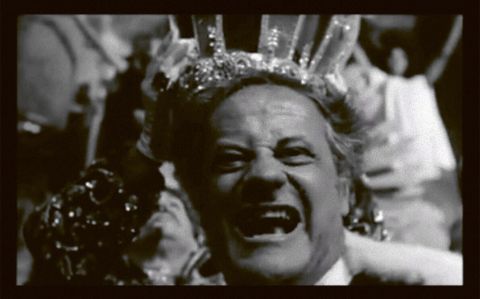Glauber Rocha

Glauber Rocha, still from Terra em Transe (1967). Courtesy of Glauber Rocha estate
With its rich and diverse natural habitat, Brazil has been hailed as the land of the future, a promise that, in all its positive ascriptions, has persistently failed to materialize. The political infrastructure remains a house of cards built on shifting sands, as Christian nationalism, Pentecostal Evangelical and other right-wing groups gain influence, accompanied by lynchings and political intrigues targeting the Indigenous, Afro-Brazilian, and landless, as well as LGBTQIA+ communities across the country. Against this backdrop, Glauber Rocha’s filmic work of the 1960s gains fresh relevance. As a foundational figure of Cinema Novo, Rocha was a distinct critic of European exoticism and the common representational politics of Brazil. Rocha’s The Aesthetics of Hunger (1965) provided not only a manifesto for Cinema Novo, but offers a response to historical and structural violence, recontextualizing the obscure origins of social struggles. Terra em Transe (1967), one of the foundational iterations of Rocha’s aesthetic and intellectual practice, serves as an allegory for these complex histories. It tells the story of an intellectual torn between regimes and political opportunities, and can be seen as a critique of political corruption and the power dynamics that shape society. In the year of its release, the film was banned and could only be screened after influential Brazilian and French filmmakers organized a series of protests. It debuted in Cannes in 1967, three years after the Brazilian coup d’état and the establishment of the military dictatorship that would go on to rule until 1985.
WORK IN THE EXHIBITION: Glauber Rocha, two extracts from Terra em Transe (1967), 1-channel video, b&w, sound, 2' 40" and 23". Courtesy of Glauber Rocha estate